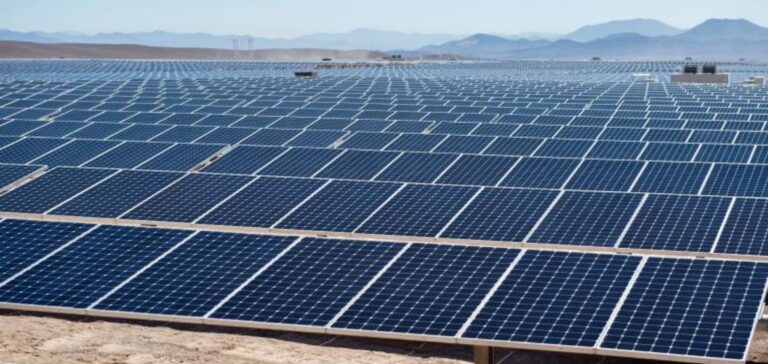Solaria, has announced that it has obtained administrative authorization for the construction of its second 175MW photovoltaic project in the province of Guadalajara. This project, known as the Olivas project, comprises five separate solar power plants: Oliva-solar 1 (50MW), Oliva-solar 2 (50MW), Oliva-solar 3 (25MW), Oliva-solar 4 (25MW) and Oliva-solar 5 (25MW). These plants will be built in the Usanos district of Guadalajara and connected to the Daganzo substation.
Economic and environmental impact
With an investment of around 90 million euros, this photovoltaic solar park is designed to produce electricity equivalent to the annual consumption of 98,000 homes. This initiative will not only contribute to the region’s energy transition, but will also create around 700 direct jobs during the construction phase, with priority given to local employment, as well as indirect jobs. The useful life of this project is estimated at 30 years, during which it will avoid the emission of over 130,000 tonnes of CO2 per year.
Technological advances and cost reduction
Solaria continues to optimize its operations through strategic purchases of photovoltaic modules. In May 2024, the company announced the purchase of 435MW of photovoltaic modules at a price of 9.11 euro cents per watt, a 71% reduction on 2022 prices. These modules will be installed as part of the 700MW Garoña project, planned to replace the old Santa María de Garoña nuclear power plant in Burgos.
The Garoña Project: an example of energy transition
Financed by the European Investment Bank and Banco Santander, the project aims to transform the former nuclear power plant into a green energy production facility capable of supplying 300,000 homes. Construction of the park, which began in March 2024, will create around 2,400 jobs, boosting local employment and generating significant revenue for public authorities.
Implications for the Spanish Energy Sector
Not only do they increase renewable energy production capacity, they also illustrate the growing competitiveness of photovoltaic technology. By replacing nuclear power plants with solar farms, Spain is taking an important step towards reducing its greenhouse gas emissions and improving the sustainability of its energy supply. These initiatives create jobs, reduce CO2 emissions and provide clean energy to hundreds of thousands of homes.






















